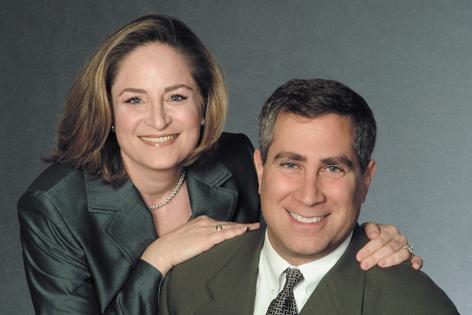What you should know about irrevocable trusts
Q: I read your article on living trusts recently. You detail the workings of property in a revocable trust and what one should do with the funds upon the sale of the property. Would the same things apply to an irrevocable trust?
I am the creator of a trust, as well as the trustee and beneficiary. There are successor trustees and beneficiaries listed. I’m wondering whether I need an agreement with the trustee to do anything regarding the selling of the house. If I sell the house, does the money come to me? When I die, all of the assets in my trust go to my kids.
A: There are all sorts of trusts out there and many are quite complicated.
The most basic trust, and the one we usually talk about, is a living trust. It is also known as a revocable trust. Once the trust is created, you have the ability to control what you put into and take out of the trust. Think of it as a bank account. You can put money in, decide who to pay and how to invest it. And, at any time you can withdraw the money and do with it as you please.
An irrevocable trust is different. It’s also known as non-revocable trust. Once you put property into the irrevocable trust, you typically don’t have the same ability to make changes and do what you want. You must follow the terms of the trust to the letter. So, if your trust requires you to keep the assets in the trust, when you sell the home, the money from the sale must go into the trust.
The irrevocable trust may have provisions for your care and for the distribution of money to you for medical and other necessary expenses. But you likely can’t use the money for anything you want.
So, you might wonder why anybody would want to use either type of trust. Well, a revocable trust is a great mechanism for holding real estate, financial accounts, and other assets so you avoid probate court upon your death. Upon your death, the trust’s assets simply flow to the successor beneficiaries. Once they have access to the assets, your heirs would simply follow the guidance of the trust. The successor trustee could manage the affairs of the trust and the successor beneficiaries would have access to the assets that are in the trust, following your wishes. Please note that for Internal Revenue Service (IRS) purposes, the trust is invisible. Any taxes owed by the trust are taxes owed by the owner of the trust.
On the other hand, an irrevocable trust stands on its own. It is considered a separate entity and files its own tax return with the IRS. Typically, irrevocable trusts are set up for a specific purpose beyond trying to avoid probate expenses. You might have an estate plan to set aside money for a disabled child or to care for loved ones. Or to fund future grandchildren’s college tuition. Or, your irrevocable trust might be designed to protect assets against creditor’s claims, to transfer wealth and minimize federal estate taxes, or for a number of other reasons. However, once the trust is set up, you can’t — or shouldn’t — treat the assets in the trust any other way except as specifically outlined by the trust terms.
So, back to your question. You shouldn’t need an agreement with the trustee outside of the terms of the trust document. The trust documents should contain all directions needed for you, the trustee, future trustees and future beneficiaries to understand what happens to the assets in the trust and how to handle the distribution of those assets. Likewise, if you sell the home that’s in the trust, the document terms should control how you can use the money that comes from the sale.
You’ll need to review your trust document and make sure you understand its terms. If you’re having trouble, consult with the professionals that help you set it up.
========
(Ilyce Glink is the author of “100 Questions Every First-Time Home Buyer Should Ask” (4th Edition). She is also the CEO of Best Money Moves, a financial wellness technology company. Samuel J. Tamkin is a Chicago-based real estate attorney. Contact Ilyce and Sam through her website, ThinkGlink.com.)
©2024 Ilyce R. Glink and Samuel J. Tamkin. Distributed by Tribune Content Agency, LLC.

































Comments